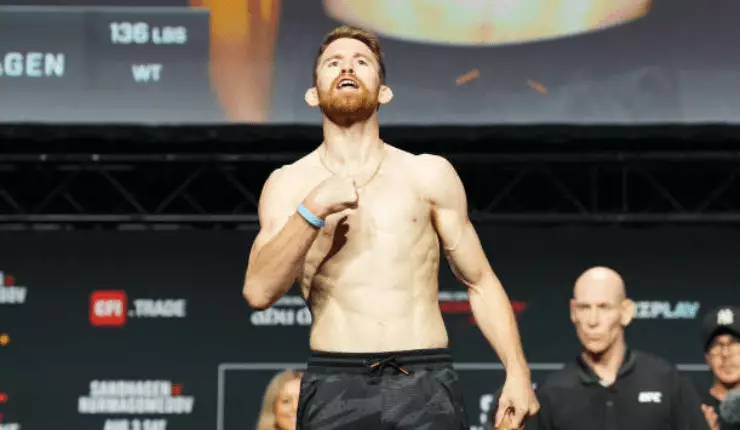Cory Sandhagen, a prominent figure in the UFC bantamweight division, is grappling with disappointment following the failure to secure a matchup against Deiveson Figueiredo. After suffering a defeat against Umar Nurmagomedov at UFC on ABC 7, Sandhagen was eager to return to contention by facing Figueiredo. However, Figueiredo’s refusal to accept this fight has left Sandhagen questioning the motivations of his fellow competitor. This dynamic illustrates the complexities and sometimes frustrating nature of matchmaking in the UFC, where personal ambitions often intersect with fighters’ decisions and circumstances.
Adding to Sandhagen’s woes is the unexpected surgery of Sean O’Malley, who is currently recuperating from a torn labrum. Sandhagen envisioned a thrilling showdown with O’Malley, only to have that dream dashed due to O’Malley’s injury. The unpredictability of fighters’ availability and the unfortunate timing of injuries can shift the landscape of potential matchups dramatically. Sandhagen’s disappointment may stem not just from the missed opportunity for himself, but also from the lost excitement for fans who eagerly anticipate marquee bouts between top fighters.
Interestingly, Sandhagen draws parallels between his current situation and an earlier time in his career when he sought a fight with Dominick Cruz. Cruz’s preference for alternative opportunities ultimately sidelined a potential clash that many fans were looking forward to. This history adds a layer of frustration for Sandhagen, as he reflects on how the indecisions and choices of others can overshadow his own hard work and aspirations. It’s a reminder that the fight game can be unpredictable and, at times, seems beyond the control of the fighters themselves.
Despite these setbacks, Sandhagen’s resolve remains unshaken. His competitive spirit is evident as he vocalizes his frustration yet reiterates his commitment to remain active in the octagon. Sandhagen has made it clear that he’s not willing to wait indefinitely for O’Malley to recover. This assertiveness speaks volumes about his desire to be consistently engaged in fighting, which is pivotal for maintaining momentum within the highly competitive bantamweight division.
Ultimately, Sandhagen’s narrative shines a light on a broader theme within professional sports: the challenge of navigating a career filled with variables outside an athlete’s control. As he seeks clarity and competition, his journey reflects the struggle many fighters face in a sport where timing, opportunity, and strategy converge in unpredictable ways. Fans and aspiring fighters alike must consider this reality, recognizing that each fight is not just a contest of skill but also a complex dance of opportunity, will, and timing. What remains clear is Sandhagen’s inclination to fight and entertain, which is a refreshing trait in the landscape of mixed martial arts.

